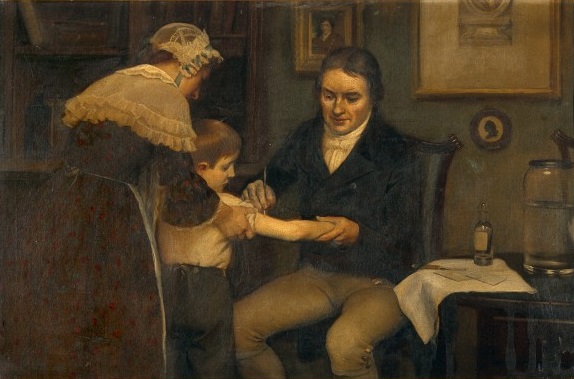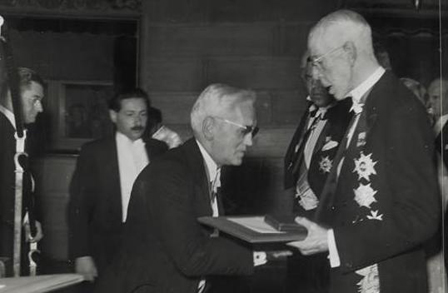Freemasons are men striving to be a part of something larger than themselves, seeking light and meaning through service to others and studying the mysteries of the universe. For centuries, our brethren have helped shape the course of history through our leadership and tireless devotion to education, research, and debate. While some of antiquity’s most notable names have graced lodge rooms across the globe, few of these men have left their mark on humanity like our greatest scientific minds.
Behind some of the most important breakthroughs in medicine and science have been Masons. These Brothers have left their mark on history through tireless work and fearless exploration. Let us reflect on a few of these inspiring men, honor their monumental accomplishments, and appreciate the work they did so that we might live more safely, dream bigger, and protect our loved ones.
Bro. Edwin Eugene “Buzz” Aldrin, Jr.
Few accomplishments throughout history have been as inspirational to all of humanity as the first moon landing. Brother Buzz Aldrin made history as a member of the Apollo 11 expedition and the first Mason on the moon. He boldly journeyed to a new frontier, making proud of his countrymen, brethren, and all those who dare to dream of traveling among the stars.
Brother Aldrin was initiated into Freemasonry at Oak Park Lodge No. 864 in Alabama and raised at Lawrence N. Greenleaf Lodge No. 169 in Colorado. He is also a member of the York Rite and Arabia Shrine Temple of Houston. Before his journey to the moon, Aldrin received a special deputation from the Grand Master of Texas, J. Guy Smith, to open a Representation of the Grand Lodge of Texas on the Moon and establish Masonic Territorial Jurisdiction there for the Grand Lodge of Texas.

Worshipful Master Edward Jenner
Known in the western world as”the father of immunology,” it is often said that Brother Edward Jenner saved more lives than any other human in history. Jenner lived when smallpox killed approximately 10-percent of the population and up to 20-percent in densely populated areas where infections spread easily. Through his research, he developed an antidote to smallpox, officially the world’s first vaccine.
Jenner was raised a Master Mason in 1802 and was a member of Lodge of Faith and Friendship #270 in Gloucestershire, England. He was active in the fraternity, serving in 1812 as Master of his lodge. This lodge was regularly visited by the Prince of Wales – the future George IV – who would play a significant role in Jenner’s life. In 1821, having known him to be a man of integrity from their time together in lodge, the now King George IV appointed Jenner to be his physician extraordinary.
Thanks to Brother Edward Jenner’s study of smallpox, future doctors and scientists could develop cures for diseases that once wrought havoc across the globe.

Sir Joseph Lister
While the notion of cleaning and sterilizing wounds to prevent infection seems obvious to us today, they are relatively recent practices in the world of medicine. We can thank Brother Joseph Lister for pioneering antiseptics in medicine which has saved untold numbers of lives. Brother Lister’s research into bacteriology became a foundational piece of preventative medicine: that bacteria should not enter an open wound. This led to an overhaul in medical practices, including the use of antiseptics to clean wounds and surgical instruments.
For his historical discovery, he earned the title of “father of modern surgery” and helped reduce surgical infections and made surgery safer for patients worldwide. To this day, his use of antiseptics remains the basis of modern surgical practices.

Sir Alexander Fleming
Few events altered the course of human history as a fateful morning in 1929 when Scottish physician and microbiologist Alexander Fleming noticed a special mold growing in a petri dish he was using for an experiment. Fleming was studying the influenza virus using this dish to grow the staphylococci germ. However, he noticed the mold had created a bacteria-free circle around itself, prompting further experimentation by Fleming and the discovery of the active substance penicillin. This accident of science would be lauded as the “single greatest victory ever achieved over disease,” and in 1945 earned him a shared Nobel Prize in Physiology or Medicine with Howard Florey and Ernst Boris Chain.
While we may take for granted its effectiveness today, penicillin’s wide-ranging application in combating illnesses made it a truly revolutionary discovery. In 1999, Fleming was rightfully ranked in Time magazine’s list of the 100 Most Important People of the 20th century.
Brother Fleming was initiated into London’s Sancta Maria Lodge No. 2682 in 1909 at 27 years of age. He was an active Mason and served as a Past Junior Grand Warden of the United Grand Lodge of England in 1942. He was also a member of Misericordia Lodge No. 3286.

Do you have a favorite Masonic figure from history? Share with us at OhioLodgeLife@gmail.com, or tag us on Facebook and Twitter.